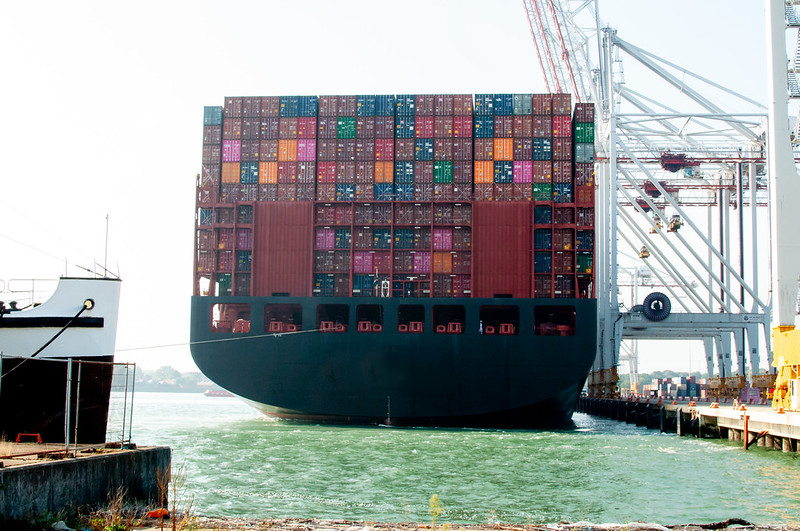
Stella Maris contributed to the BBC World Service radio programme ‘Stormy Seas for Global Shipping’, to help highlight the plight of stranded seafarers.
A Samoan seafarer, Adam*, who has now been stranded at sea for 21 months – and with whom Stella Maris chaplain, Julian Wong, has recently worked to try and secure his repatriation – spoke to Vivienne Nunis, presenter of BBC World Service programme ‘Stormy Seas for Global Shipping’ (go to 02:58), telling her of his lengthy ordeal, and his agony of being separated from his family for so long.
Adam spoke of how he had joined his ship in Rotterdam to work as a deck-hand, in May 2019. His contract was supposed to finish nine months later, however now, approaching almost two years later, he is still stranded at sea. The efforts of his company to repatriate him were continually thwarted by international bureaucracy and the ever-changing border closures because of the very fluid pandemic situation. Adam told Vivienne of the extremely hard time that he is having: “… every night I cannot sleep, because I feel like I don’t know when. I miss my family so much, especially my wife and my daughter.” He said that when he left home, his wife was four months pregnant, and now his little daughter is about one year and four months old, but she hasn’t yet seen her father, “…that’s the worst part of my life.”
There is some sign of hope for Adam, given that his country is now arranging special flights for seafarers to get back home – a service that his fellow workers have used. Adam has asked his captain about this flight, but so far it is proving hard to arrange. Adam’s next stop is Long Beach, California. His one consolation is that his company are still paying him as long as he is on the ship, however, he adds, “… for the truth, I don’t need money now, I need to go home.”
Speaking further of Stella Maris’s worldwide work with seafarers, Ian Stokes, Head of Corporate Engagement and Partnerships, told Vivienne of the help that Stella Maris has recently been providing to different groups of Kiribati seafarers – many of whom are now far from their native Pacific Island home, in places such as Santos in Brazil, in Fiji and Jakarta, and in European ports such as Copenhagen and Hamburg.
Adding his voice to the particularly grave plight of the estimated 200,000 stranded seafarers currently stuck in dire situations around the world, Ian highlighted the fact that “these guys should be on the ship for six to nine months, (but) some are now 15, 18, 21 months on ship… and that’s their workplace, that’s their home, that’s their exercise, and other things as well… what if they need the doctor? what if they need the dentist?”.
Above all, Ian noted that perhaps the worst thing for these workers is the continued uncertainty: “They don’t mind a bit of delay as long as they can say, “well perhaps I’ll be delayed two weeks and then I’ll be going home on Feb 22nd”, but no one can say that to them, I’m afraid. A lot of them are in limbo, that’s the thing that eats away at them.”
Vivienne ended the programme highlighting the fact that some 300 companies, unions and NGOs related to the global shipping industry, have recently signed the ‘Neptune Declaration’, aiming to put pressure on governments to help find a solution to help stranded mariners by designating them key-workers and prioritising them for vaccines. However, Stephen Cotton, general secretary of the International Transport Workers’ Federation (ITF), noted that not all companies and organisations have been forthcoming in offering their support to this initiative – confirming that some have opted instead, as Vivienne suggested, to “choose profits, over getting some of these stranded seafarers home”.
* not the seafarer’s real name
Programme broadcast: Monday 8th February, 2021

